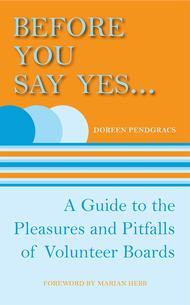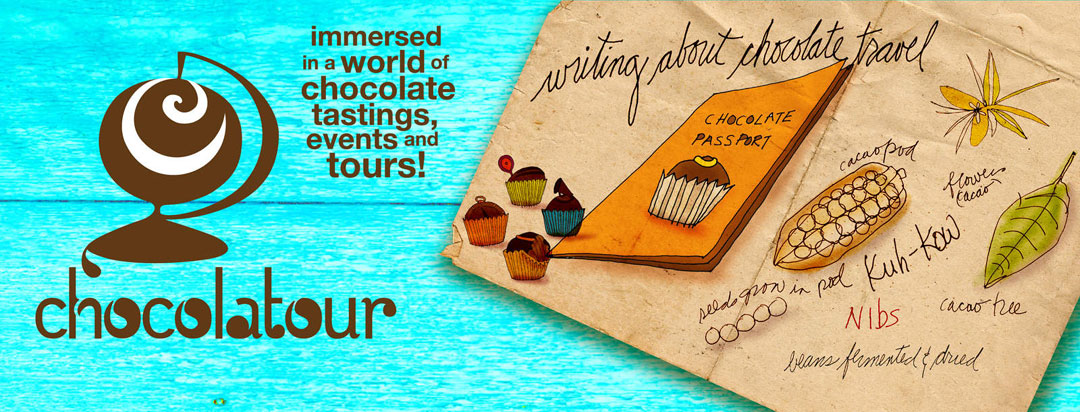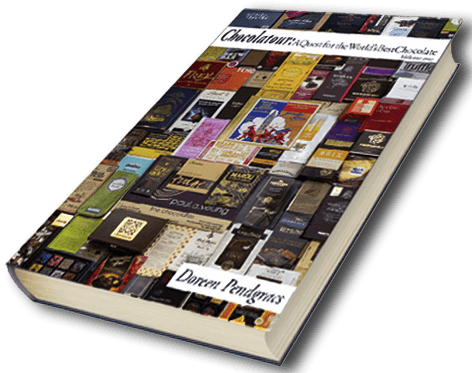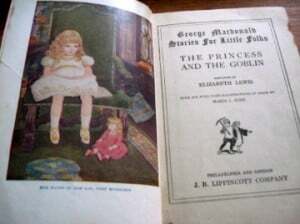writing and the economy
Thanks for the great discussion that ensued from my last post on honesty and our prime virtues. You guys rock, and I love the vibrant community we have established here.
As members of several writers’ listservs to which I belong have recently been discussing the ever-evolving and changing path of the professional writer, I thought I’d redirect our discussion on this blog back to that. How are writers making money these days (in view of the tight economy and the challenges created from online markets that are expecting content for free.)
I started freelancing back in 1993 and spent the first year or two as a self-employed writer doing projects similar to what I did in the corporate world: writing newsletter content and press releases for clients. It was fairly lucrative, but not where my heart was. It was too much like work!
I liked telling stories and sharing ideas with readers. I wanted to put more life in my work. To integrate life and work so that I could be writing about my passions and interests. I think that is the key to surviving as a writer in this changing economic climate. You’ve got to be flexible – and opportunistic.
I was able to break into the magazine market in 1995 by sending a letter of introduction to a national magazine. Just so happens they were looking for a writer in my region and so began a 10-year relationship with a publication I loved. From 1995 onward, my writing career focused almost exclusively on feature writing and that was my primary source of income for about 13 years. I loved it, and by 1997/98, was writing articles focused on travel. THIS is where I wanted to be. Getting paid to write about travel (my first love) was the cat’s meow.
But by around 2008, it became increasingly difficult to continue exclusively as a magazine writer. Publishers were demanding writers sign all-rights contracts, meaning that we could not resell our work and that they had the right to put our work on their websites, in anthologies and in every other medium that had been (or may be!) invented. And rates were beginning to decrease. Primarily because too many people were willing to give their work away for free in exchange for “exposure.” You can die from exposure!
Because of my membership in PWAC, and listing in the association’s online directory of writers, I was found by a publisher in 2008 and asked to co-author the Manitoba Book of Everything. That project helped me re-focus on the idea of writing books. (After an unpleasant experience in 2003, I thought I’d never want to write another book. But like they say, “one bad apple don’t spoil the whole bunch.”) The 2008 experience was completely positive and in 2009, I authored “Before You Say Yes …” (BYSY) my first solo project. I was back in the right place and have found my mojo as an author of non-fiction books.

How do you get idea to completed project? In the case of BYSY, I was lucky. Through my volunteer work with Access Copyright, I knew a publisher who was interested in publishing a book about volunteer boards. I secured a contract and had the book written within a number of months. The book was published in March, 2010, and since then, has provided me with the platform to become known as an “expert” in the field of volunteerism. I am now earning a good portion of my income from facilitating and conducting workshops on subjects related to the contents of my book.
And I have been researching my next book on chocolate and travel, Chocolatour. This has proven to be a much larger project than I originally anticipated (there’s a heck of a lot of amazing chocolate out there!) and so my proposal for this book has gone through a number of drafts. I am so very grateful for the help I have received from professionals like Erin Reel, The Lit Coach.
If you’re working on a project that seems to have a life of its own and you need to develop or focus your work/strategy, I highly recommend engaging the professional services of a literary coach. He or she will help save you frustrations, and hopefully, help gain you a better financial result from your hard work.
And afterall, that’s what we’ve been talking about in this post. How to make a living or move forward with your writing career in these times of economic instability.
What’s your secret to success? What’s helped you keep afloat, rise to the top or just keep persevering without losing hope? Please share your thoughts and experiences with us. We all learn from one another’s mistakes and triumphs.














Thanks for sharing your story, Susan. Good on you, for making it thru the recession as a new freelancer! That's is indeed quite the achievement.
Indeed, diversification is the key to any freelancer's success.
And for those of you who don't know Susan, she runs the Urban Muse blog which you can find here: http://www.urbanmusewriter.com/.
I left my job to freelance full-time in 2008, right around the time the recession was really starting to impact people. I'm fortunate that I've been able to make it work financially but it does require quite a bit of juggling. I do copywriting for retailers and small businesses, write articles for magazines, newspapers, and websites and also teach writing at my local adult education center. Last year, I self-published my ebook, so that's another revenue stream for me. I think diversification and versatility has been key to my ongoing success.
Thanks for joining the conversation, Barb.
Yes, you're right. Sometimes writing about the fun stuff or things for which we are most passionate may not be lucrative. But then I look at Elizabeth Gilbert and her hit with Eat, Pray, Love and am encouraged to think that there is a definite market for that kind of heart-felt, impassioned writing that has meaning without being too preachy. I can really relate to that.
Great post, Doreen. As you know, I'm a firm believer in doing what you love, whatever type of work that is. In the case of writing, sometimes it's not as 'lucrative' to write about our lives/passions, and it can be a process, but I do believe it's possible. And there a many different ways to integrate work, play and life.
I like the left brain-right brain interpretation. Very observant!
Lovely to have you back on this blog, Virginia!
Yes, I know. You do left brain writing and are very strong with left brain thinking. I do right brain writing and let my emotions drive my thoughts and words. Very different, indeed. With your writing, the facts are the basis of the content. With mine, emotions are the basis.
So you have a strong detachment of work time from fun time. Whereas, with my writing, as I mainly write about fun things (such as travel, wine and CHOCOLATE) there is a heavy overlap and the blurring of lines between work and fun. I write about virtually every aspect of my life, from feeding the birds and the deer to fun and business aspects of the hospitality industry. Life is at the core of my writing. And the content of this blog is the core of my life.
Fascinating discussion. Thanks for engaging me. And I do hope we'll soon be off on another chocolate adventure!
I'm probably going to get a scolding for this, but I am at a stage where I work to live. I sacrifice some personal career satisfaction so that I can exploit a writing niche. I feel grateful to be able to do this, even though it can sometimes be a bore/chore. The better pay frees me up to pursue my other loves: skiing, hockey, traveling (especially when that involves Doreen and chocolate), kayaking off the coast of Newfoundland with Alison Dyer (hi Alison!), reading,live theatre and just generally hanging out with friends and family. I wish I could make as good a living writing about subjects I am passionate about (see above), but that just ain't gonna happen in my lifetime.
I'm really enjoying this discussion. Thanks so much to Heidi and Carmel for also joining in.
Carmel: Congrats to you for setting the bar high and having a clear goal. I think that sometimes I (and others) get too complacent in wanting things to be as they are and not wanting to reach far enough to achieve new highs.
I think that, especially when we've been in the business a long time, we tend to think we don't/shouldn't have to try as hard as … in reality … we do. I guess we have to give ourselves a shake every once in awhile, and as Sandra has said, look a little harder to find new opportunities and new markets. They're there. We just have to look for them.
Hi Doreen,
Thanks for giving us the opportunity to comment Doreen…
I don't believe in putting all my eggs in one basket!
The reason I love to write is that I can choose any number of ways to get my writing out there. My real love is writing books – there is nothing like seeing your name in print; whether it is for the first time or the tenth time. My main focus for the past couple of months has been to put my nose to the grindstone and finish my latest book (non-fiction) entitled 'New Brunswick: Facts, Firsts and Innovations'. I'm fortunate that through another PWAC member I was introduced to a small publisher who likes my style of writing. This book will be published in the spring 2011 and I'm currently looking at two more contracts with this publisher.
But book writing does not pay the bills (yet) so I supplement my income with technical writing (lately in the nuclear industry). I said I was not going to do another contract for at least a year, but I've had a really good offer for a 6 month contract (could extend into a year) that was too good to pass up. When I negotiated this contract I managed to get enough flexibility built into it that I will still have enough time to keep up with my freelance writing.
I believe like Sandra Phinney that freelancers need to diversify. It is a challenge to get (and keep) contracts (or markets), but as freelancers we need to keep our eye on the ever evolving 'media world'. I really feel it is important to keep current and to not be afraid to try the unknown. I'm taking on a more active role with agricultural writing and it really excites me to be able to learn and help other learn about farming in Canada.
Create a goal and have a business plan. I don't think I can count on winning the lottery any time soon, so my business plan is to have at least 5 more books published by 2014. I've set the bar high, but what fun I'll have trying to reach it!.
Fantastic post, Doreen. I think it's really important to be honest that along with the good times in writing come not as good times. I love hearing about other writers' experiences and what they did to create more work, find new clients or just generally diversify. I've also never heard of a literary coach, but I'm tempted to click on that link to find out more.
Thanks for your honesty, Doreen. And thanks for sharing your experiences.
Hi everyone:
I am posting the comment below on behalf of Sandra Phinney who tried 3 x from Tortola to post a comment and is having problems. Thanks for the great advice, Sandra.
Sandra writes:
Although some magazine markets are dwindling, new ones pop up almost every day. I don't see the paper/publishing world dying at all. Sure I've lost markets/editors but I've picked up as many new markets as I've lost. I think we tend to rely on the "same-old/same-old" and don't work hard enough finding new markets. So it's worth checking the news stands for new magazines, as well as keeping abreast of the news in magazine world (e.g., through Masthead http://www.mastheadonline.com/)
It's also important to diversify. Could be as you're doing writing books; could be giving courses about writing and/or mentoring or using related skills, e.g., photography as a source of income.
Also, can't say how important it is to have a vision, goals, and game plan. The best thing I ever did was hire a business coach. My writing income doubled. But I had to get my act together and actually DO something about the dreams I had. haha.
Keep up the good work. Great stuff you do. Now let's see if I can post this.
Sandra
http://www.sandraphinney.com
until April 21 2011: (284) 495-4527
after April 21 2011: (902) 648-0462
Thanks for joining the blog, and the conversation, Tammy.
Yes, it is indeed an increasingly difficult environment for a writer to make a living. But you're doing a great job in taking the necessary steps. You've joined the preeminent assn for Canadian freelancers (PWAC), You've got a paying job to get you by, and you've embraced social media and are getting your name out there.
No editor with a brain can refuse you now! Keep the faith and keep trying to break into the premium paying markets. Eventually you'll make headway and leave the losers in the dust.
Hi Doreen,
I still consider myself fairly new to the writing community (I joined PWAC last year and am still working in-house as an editor since I don't have nearly enough job opps to go freelance yet), so it's interesting to hear the different areas writers are branching out in.
I've always felt that I was born a few decades too late – I still love the printed word over digital, I only learned to blog and tweet last month, and my dreams of writing for magazines seem increasingly difficult in this new economy you mentioned, where rights are signed away, the pay is minimal, and exposure is seen as payment enough for new people like me.
For awhile, I was willing to accept low-paying (or no-paying) gigs in the name of exposure, just to build my portfolio. And I don't regret it, as I got some good clips and made some good contacts through that grunt work. But now that I've built up that base, I feel like I should be worthy of making an actual wage for my work. It boggles my mind that experienced professionals are still being asked to submit things for free for "exposure".
Good on you, Luigi, for having a business plan. I admit that after 18 years of freelancing I don't have one – and never have! Yet, I definitely think of myself as a business. Just an unstructured one.
Margaret, I love that term "serial entrepreneurship." Thanks for bringing it into the conversation. I think that, for the most part, we freelancers are/must be serial entrepreneurs in that we have several different and distinct facets to our income streams. We have to … for survival in today's writing world.
I think that a benefit of being a creative person who runs a business is that usually our gifts go beyond the standard circumscribed job description. Most folks I know have some other creative ability or more, whether it be art, music, acting, dance or the spoken word.
Last week I interviewed the Dean of the Asper Centre at the U of Manitoba, who talked about serial entrepreneurship, in other words, having tasted success in one area of business, business people have gone on to create another business built around a different idea and/or market. So perhaps there is something to learn from our primary business and to build on those other talents that we might like to explore.
I've been fairly focused on my writing assignments over the last 7 years (can hardly believe it's been that long, but it's just flown by) but am contemplating whether to branch out to those other areas I've put on hold. I am a Fine Arts graduate from eons ago, but the spark is still there. I agree with some of the comments on this blog about always having to get that next writing job which can interfere with taking the time to forge a different path that can be fashioned into a business plan. I guess it's all about creating life as a tapestry of interests and passions that besies paying those pesky bills, can also contribute to a satisfying time on this planet.
Thanks for dropping by the blog, Damian. And it's nice to "meet" a fellow PWACer. You must be a lurker on the listserv. Welcome!
I absolutely love the pics on your blog. You've got quite the cast there!
Sounds like you've got a wide-ranging skill set. Make it work for you! Don't get discouraged. We all have hard times, but believing in yourself and knowing you've got amazing talent will help you hang in there until others realize it!
Teaching for Community Theatre sounds like a perfect gig for you. Good luck with it.
Right now, I'm redoing my business plan from the ground up, going back and forth between the mechanics of freelancing and the vision I have for myself as a freelancer. The objectives:
– better understand what I'm doing
– better understand what I want to do
– share plan online where other business people can comment on it (they're doing the same and I comment on their plans)
Hi Doreen,
I found this to be a timely post – today I'm researching the possibilities of writing for the Video Games industry, as well as designing a course for me to teach in writing for Community Theatre. Until a year ago I got by on my playwriting royalties, but the nose-dive in the UK/Canada exchange rate cut my income and I had to get a *Gulp* day job. Remember that thing they tell you not to quit? Ha. Staying positive is the hardest part, when I feel like I don't have time to write the stuff I want because I'm chasing something that will pay NOW. Fact is, I should be adding to my plays because over time they contribute the best income, but I don't get paid for them until they've sold a few performances. Sigh.
Thanks, also, Alison, for your comment. Must have crossed in cyberspace as I was responding to Bruce's comment.
Hats off to you for focusing on the environment and using your writing abilities to make the world a better/safer/cleaner place. Congrats for continuing to pursue higher learning. Sometimes that's what it takes to elevate your opportunities and rejuvenate your writing spirit.
Thanks for your thoughtful response, Bruce.
As you know, I am a strong cheerleader for networking and being part of professional associations. As you have illustrated, membership in orgs with like-minded people really helps you focus – or refocus – depending on your needs and desires.
I have said on more than one occasion that I owe a big party of my career to PWAC, and I continue to feel that way 14 years later.
Hi Doreen,
good to read these words. Not sure what keeps my hope and perserverance in light of what appears to be dwindling resources for professional writers and journalists in print media. My reason for writing professionally remains my interest in the environment. In the past few years I work (mainly volunteer) to build capacity in the local/prov. organic movement – a nexus point for many environmental issues. Few of us (writers) can afford a sabbatical. But in 2006 I applied and was awarded a fellowship to Metcalf Institute of Marine & ENvironmental Reporting at University of Rhode Island, Grad. School of Oceanography. I recommend freelance journalists investigate this type of 'rejuvenation.' Meanwhile, I continue to diversify my portfolio: taking a course on predictive analytical statistical software for research purposes; consulting for & writing more web-based articles for the nfp & corporate sectors; and keeping my 'creative' writings going by submitting (and getting published) in poetry, prose, etc.
When the recession hit in 2008, my medical writing work dried up and I found my business floundering. Rather that firing up the marketing machine, I took the slowdown as an opportunity to examine where I was going in my writing career and in my life. I discovered that I really didn't want to work for the pharma industry anymore, primarily for ethical reasons.
So I've started to diversify. I'm now getting into medical white papers thanks to the guidance of my PWAC buddy, Gordon Graham, aka That White Paper Guy. I'm also editing books and learning how to write narrative nonfiction. (no sales in that area yet, but I'm getting some great instruction and may apply to the Banff School of Fine Arts on the advice of my friend, Pauline Clift, who has been there.
Most importantly, I've been working on my business plan, thanks to the advice of Paul Lima, who advocates an annual revision of your BP. I am doing this with two other PWACers. We post our BPs on Google docs and give each other advice and suggestions.
I'm a firm believer in the principle of "we" instead of "me." When we come to an impasse in our writing careers, or if a once lucrative market dries up, being part of a professional writers organization can help you find a new direction and get back on your feet quickly. You can brainstorm with your colleagues, learn what other people in your situation are doing and find open doors you didn't even know existed. Sure beats slaving away in the wilderness, competing with a million others like you.
Thanks for this blog, Doreen. I'm glad to have you as part of my community.
Bruce Wilson
Ste-Adele, Quebec
Thanks, Christine, and Amanda for joining the conversation.
So we have two more votes for adding teaching as an income stream to augment income earned from one's own writing income. I've taught short workshops on writing, but have never taught an ongoing course. I can see you both doing well at it as you both are very articulate at expressing yourselves.
I just never found much satisfaction in doing corporate work. I love having my byline attached to my words and enjoy having more creative control over the finished product. My experience with corporate work had been that they were too many decision makers involved in crafting the message. I found having to do several drafts of a straight-forward message or document to be frustrating and not the best use of my time.
Good thing there is a large variety of writing projects to satisfy the vast variety of interests and skills we have.
I've been earning my living as a writer for many years now, although never full-time as a freelancer. I've worked in the corporate world and when that door slammed shut behind me, I started writing on contract for business and community groups, which has become my specialty. This writing never has my own byline on it; it's always for that nameless corporate voice or in the client's name. I do love seeing my own name in print, however; and I've been delighted to have two pieces published in Herizons magazine over the past three years. You can see that THAT's no way for me to earn my living! I edit other writers' work and have really enjoyed seeing those books published – vicarious satisfaction! And I've added teaching into the mix and am moving into that full-time, leaving contract writing and editing for my off-hours. I'm looking forward to this change in rhythm in my life.
The expression "variety is the spice of life" rings true here. Variety is the spice the writing life too, and adding spice to anything makes it better. You've talked about your varied projects, which has made your writing life better. For me, it's been adding teaching to my writing that I love. I am working with people who are using expressing their creativity through writing–they just love to write. That has brought me back to my love of writing, where getting published becomes almost secondary. Of course I still want to get published (and paid) so that becomes one focus, and working with these writers becomes another. It all adds spice to my writing life.
Yes, you're coming into the world of a professional writer at a most difficult time, Elizabeth. (Elizabeth is s wonderful writer and bookseller I met at the Kenora Word Fest last fall.)
When I first started freelancing, I specifically sought out publications that paid on acceptance and avoided ones that pay on publication. I know that is getting harder to do, as more & more mags seem to be paying on publication (if at all.) I can't believe how many requests I get to write a guest blog, offer my content for "exposure", become engaged in projects where I am a shareholder rather than getting paid for my words & efforts.
You are right to have several streams of income to see you through the lulls of freelance writing. It's all about peaks & lulls and you have to have some steady income that gets you from writing gig to writing gig.
With your talent and perseverance, I'm sure you'll find your way.
Hi Doreen! Found this an interesting entry…
As you know I've been working on a big project while trying to operate a business and go to school. I crashed at the end of Jan and had to take a break from the book. I do have a couple of magazine articles coming out March and April (I think… One never knows for sure until seeing it in print).
Just starting out means a long delay between writing and paycheque, and I am finding that challenging. It's difficult for me to keep motivated when that necessary reward seems so far off. There is a certain satisfaction when I complete something and it seems good to me, but for some reason, that doesn't last very long… lol – neither does the paycheque, come to that!
So, I'm looking forward to some inspiration in the comments that follow!